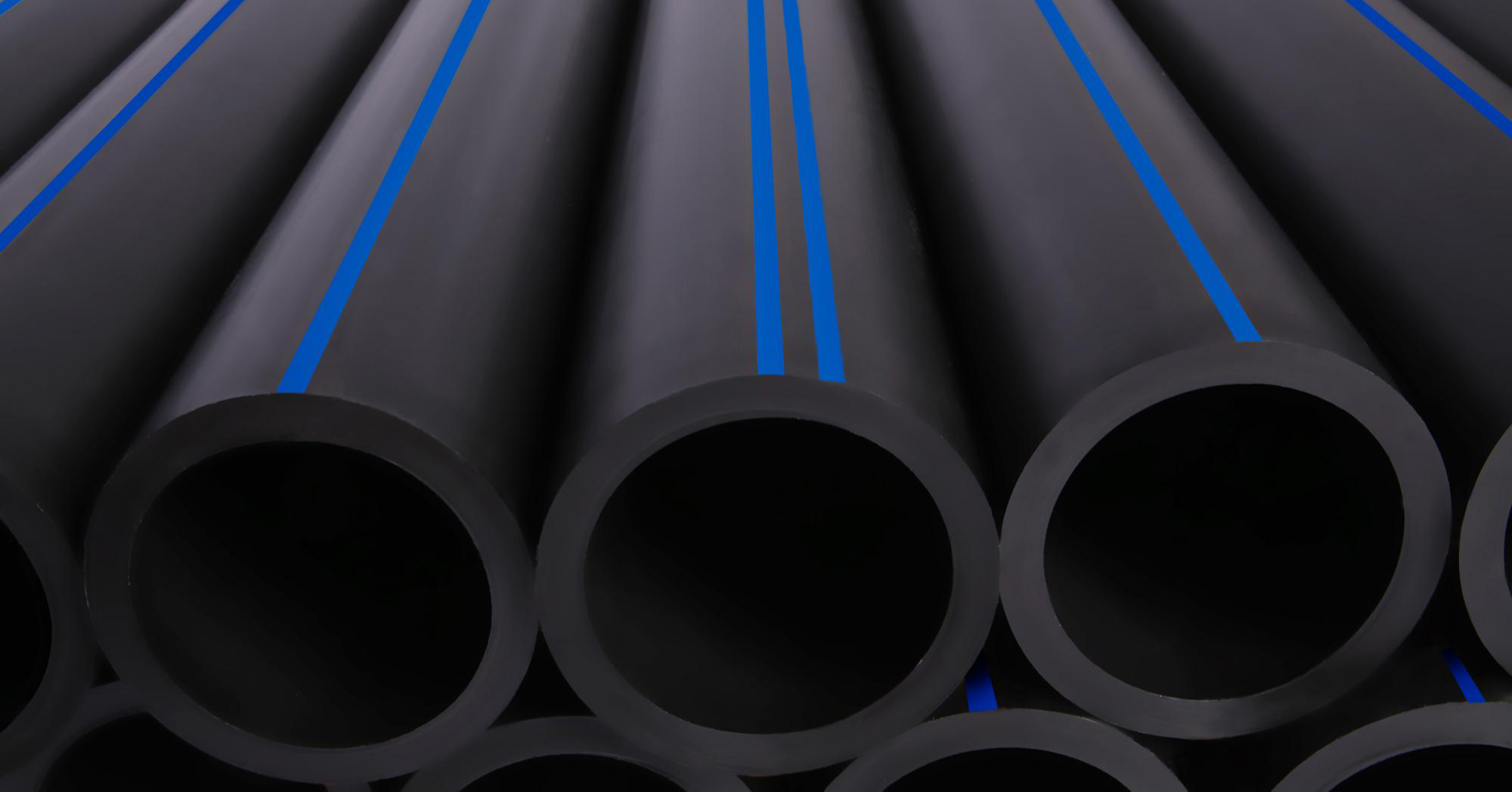Why hdpe pipe in stock Midland TX Is Essential for Local Industries
Recognizing the Trick Conveniences of HDPE Pipeline for Water and Wastewater Administration
Using HDPE pipeline in water and wastewater monitoring offers various advantages that warrant consideration. Its exceptional durability and long life expectancy make it a favored option for lots of tasks. Additionally, the product's resistance to corrosion and chemical damage improves its integrity in numerous atmospheres. The advantages prolong past simply longevity and resistance. custom hdpe pipe manufacturing Midland TX. Exploring its cost-effectiveness and environmental effect exposes much more compelling reasons for its prevalent fostering in modern infrastructure
Outstanding Durability and Longevity

HDPE pipeline stands apart for its remarkable longevity and longevity, making it a favored option in water administration systems. Constructed from high-density polyethylene, these pipelines can hold up against considerable stress and anxiety, ensuring reliable efficiency gradually. Their robust nature enables them to withstand extreme ecological conditions, consisting of temperature variations and soil motions, which can create various other products to fail.
The lifespan of HDPE pipes frequently surpasses 50 years, giving a cost-effective service for municipalities and sectors alike. In addition, the material's lightweight properties streamline installment, decreasing labor costs and timeframes. This toughness minimizes the requirement for frequent repairs or substitutes, better improving its financial allure.
In water administration applications, the dependability of HDPE pipelines implies less disturbances and boosted service connection, making them important to lasting infrastructure growth. The combination of durability and durability solidifies HDPE's function as a foundation in effective water management options.

Resistance to Deterioration and Chemical Damages
While lots of products yield to deterioration and chemical damages over time, HDPE pipelines display amazing resistance, making them optimal for numerous water management applications. This resilience originates from the molecular framework of high-density polyethylene, which is naturally non-reactive and does not wear away like steels or weaken from exposure to rough chemicals. As a result, HDPE is highly effective in settings with aggressive compounds, such as wastewater systems that may include acids, bases, and natural solvents.
Additionally, HDPE pipes can stand up to environmental factors such as soil acidity and saline problems, better boosting their suitability for diverse applications (American Plastics HDPE Pipe for Oilfield). Their ability to keep architectural stability in time decreases the danger of leakages and failures, which is crucial in ensuring the security and integrity of water distribution and wastewater monitoring systems. Consequently, the resistance to corrosion and chemical damage noticeably adds to the general effectiveness and long life of HDPE piping options
Cost-Effectiveness and Financial Benefits
When thinking about the economic effects of water administration systems, the cost-effectiveness of HDPE pipes ends up being noticeable. These pipes provide reduced installment and upkeep expenses contrasted to traditional materials like metal or concrete. Their light-weight nature streamlines transportation and setup, resulting in minimized labor expenses. In addition, HDPE pipes display a lengthy life expectancy, frequently surpassing 50 years, which converts to fewer substitutes and long-lasting check here savings.
Moreover, the resistance of HDPE to corrosion and chemical damages reduces the requirement for expensive fixings and replacements. The pipelines also sustain efficient water flow, minimizing power prices connected with pumping systems. By mitigating leakages and water loss, HDPE pipes add to significant economic advantages for municipalities and markets alike. Generally, the initial investment in HDPE piping can produce substantial monetary returns over the life-span of the water monitoring system, making it a sensible option for sustainable infrastructure advancement.
Environmental Sustainability and Minimized Impact

Versatility and Adaptability in Installation
As a result of their special properties, HDPE pipelines offer impressive adaptability and flexibility in setup, making them appropriate for a broad array of applications. Their lightweight nature permits for less complicated handling and transportation, minimizing labor prices and installment time. HDPE pipelines can be bent and formed to fit numerous terrains and project requirements, which is specifically useful in challenging settings.
Furthermore, their resistance to deterioration and chemical damage enables setup in varied setups without the requirement for specialized safety finishes. The capability to fuse joints develops a constant, leak-free system, improving the general stability and dependability of the installation. HDPE's flexibility additionally fits ground activity, lowering the danger of damages in areas prone to moving soil. Overall, these features make HDPE pipelines not only versatile but likewise a favored choice for water and wastewater administration systems.
Frequently Asked Concerns
Just How Does HDPE Pipe Compare to PVC in Water Administration Applications?
HDPE pipe uses remarkable versatility, resistance to deterioration, and resilience contrasted to PVC. Its lighter weight promotes simpler setup, while its lengthy life-span decreases replacement expenses, making HDPE a recommended choice in water management applications.
What Is the Life Expectancy of HDPE Water Lines Under Regular Conditions?
Under common conditions, HDPE pipes can have a life-span ranging from 50 to 100 years. Their durability and resistance to corrosion contribute to their long-lasting efficiency in various applications, making them a reliable choice for infrastructure.
Are HDPE Pipeline Recyclable After Their Solution Life?
Yes, HDPE pipelines are recyclable after their solution life. American Plastics HDPE Pipe for Oilfield. They can be refined and repurposed into brand-new items, considerably decreasing environmental influence and advertising sustainability within the industry, making them an environmentally friendly selection for piping options
What Is the Installment Process for HDPE Piping?
The installment process for HDPE pipelines includes website preparation, trenching, pipeline combination or mechanical joining, backfilling, and pressure testing. Appropriate techniques guarantee a resilient and reliable system for carrying water and wastewater successfully.
Can HDPE Pipeline Be Utilized for Both Drinkable and Non-Potable Water Solutions?
Yes, HDPE pipelines can be made use of for both drinkable and non-potable water supply. Their adaptability, resilience, and resistance to rust make them ideal for numerous applications, ensuring safe and efficient transport of water in different contexts.